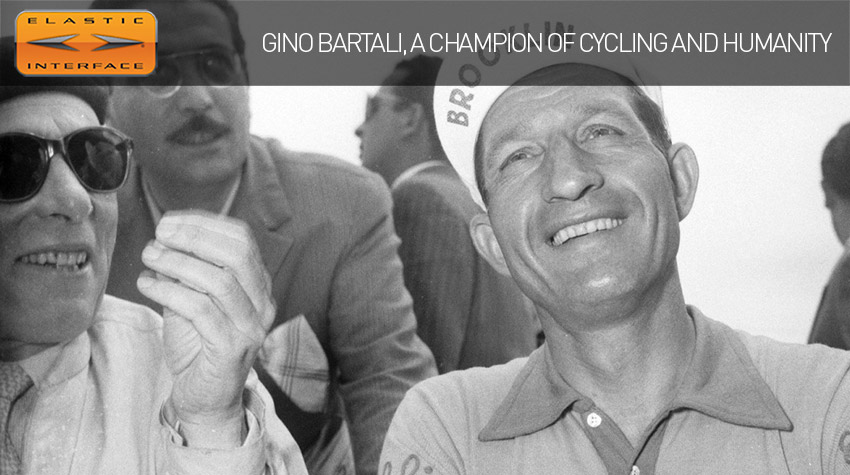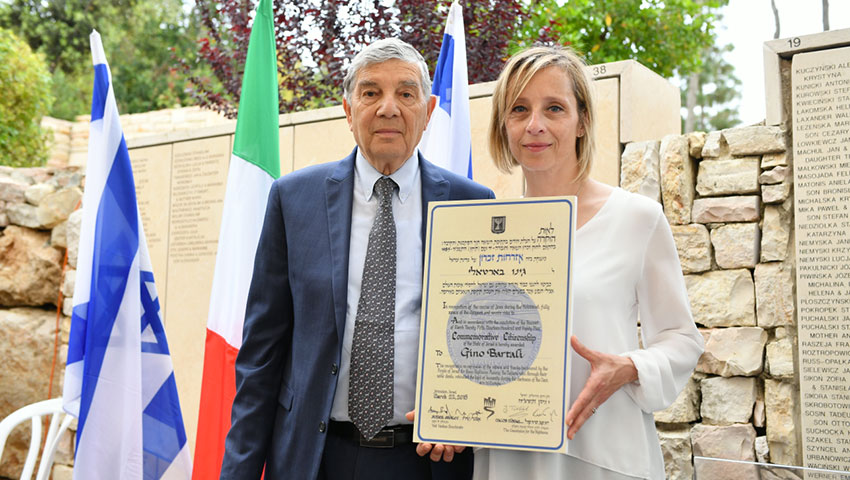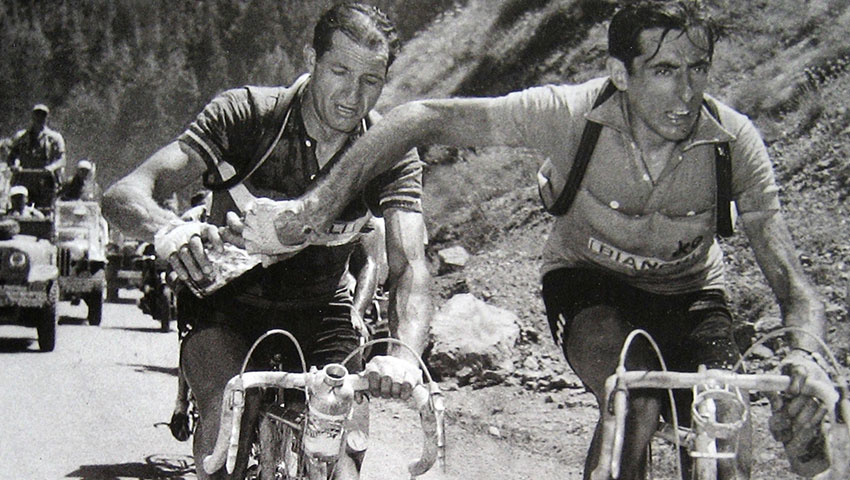
Gino Bartali, a champion of cycling and humanity
[ssbp]I always loved Gino Bartali, the great cycling champion credited with some of the most legendary feats of our sport. From Giro d’Italia, won in 1936 when he was just twenty-two years old, to the memorable 1948 edition of the Tour de France that he truly dominated, through his rivalry with Fausto Coppi and plenty of other victories, Ginettaccio [bad-ass Gino] is one of the sportsmen whose collective image is very deeply-rooted amongst Italian people.
But when the world became aware of the fundamental help he gave to many people of Jewish faith during World War II, all his fantastic victories gave way, in my heart, to the immense humanity and amazing courage he demonstrated during such a difficult time.
How did Gino help save many Jewish people from the terrible Nazi-Fascist Holocaust?
Reached out by Elia Angelo Dalla Costa – Florence’s Archbishop between 1931 and 1961 – Gino Bartali joined DELASEM (Delegation for the Assistance of Jewish Emigrants) in 1943, before carrying out his humanitarian mission, between September of the same year and June 1944.
Setting off from Terontola – Cortona railway station and reaching at times places as far as Assisi, he rode his bike hiding paperwork and ID pictures inside the tubes of the frame, in order to deliver them to a secret printing facility that were forging the documents Jewish refugees needed to escape.

On occasions, he was halted by fascist guards and a few times he was grazed by the explosion of a bomb. Nevertheless, indomitable courage and a deep faith helped him persevere in his efforts; they helped him become the saviour of around 800 people, as Carlo Azeglio Ciampi, President of the Italian Republic, emphasized in 2005, during the ceremony that posthumously awarded him the Gold Medal for Civil Valour.
During the following years more honours, perhaps even more important, were bestowed upon him: on the 2nd of October 2011, he was included amongst the “Righteous of the Holocaust” in the Garden of the Righteous of Padua, and on the 23rd of September 2013 he was recognized as “Righteous Among the Nations” by Yad Vashem, the World Holocaust Remembrance Center.

This is an honour that has been conferred on many non-Jewish people who have been actively involved in saving one or several Jews’ life during the Shoah. The name and memory of Gino Bartali, together with those of many other heroes, will be kept alive forever, thanks to the commemorative stela on Mount Herzl, near Jerusalem.
Finally, on the 2nd of May 2018, he was bestowed the honorary citizenship of Israel, just a couple of days before Giro d’Italia took off in the streets of the capital.
Gino Bartali and cycling: his most memorable successes
After our brief description of his humanitarian commitment in favour of Jewish people persecuted during World War II, we would like to conclude with a chronicle of some of his most famous sporting achievements.
Victories of Three Giro d’Italia (1936, 1937 and 1946) stand out amongst his greatest triumphs, together with a double at the Tour de France (1938 and 1948), four at Milano – Sanremo (1939, 1940, 1947 and 1950) and three at Giro di Lombardia (1936, 1939 and 1940).
The 1948 edition of the Tour de France is certainly the most famous of all his victories: as a matter of fact, it is often mentioned that it played a decisive role in keeping Italy away from a civil war, after the assassination of Palmiro Togliatti, the political leader of PCI (Italian Communist Party). At the time Gino was 20 minutes behind French champion Louison Bobet in the general classification. Immediately informed from Italy and warned about what had just happened, he was advised to conquer the yellow jersey in order to distract the public attention.
The next day, the Tuscan cyclist, more motivated than ever, launched his attack on Col d’Izoard and crossed the finish line in Briançon with raised arms. And – no more than twenty-four hours later – he repeated that in Aix-les-Bains, dethroning the proud opponent from the top position. Finally, uncatchable for all tired rivals, on the 25th of July he triumphed by 26’16” over Belgium’s Briek Schotte.
The mythical passing of the water bottle between him and Fausto Coppi took place while they were climbing Col du Galibier during the 1952 edition of the Tour de France: it has been eternally immortalized in a photograph that all fans remember… but we will never know who actually passed the bottle to whom.

Riccardo Tempo